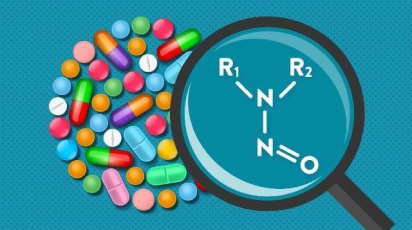Nitrosamines are a group of chemical compounds that are known to be carcinogenic or cancer-causing. They are formed when nitrites, which are commonly used as preservatives in food, react with secondary or tertiary amines under certain conditions. Nitrosamines can also be formed during the manufacture of some pharmaceuticals and industrial chemicals.
Nitrosamine impurities have been a concern for many years, and the issue has gained renewed attention in recent years due to the detection of high levels of nitrosamine impurities in certain medications, such as ranitidine (Zantac), valsartan, and metformin. This has led to recalls of these medications and increased scrutiny of the pharmaceutical industry’s manufacturing processes.
The detection of nitrosamine impurities in medications has raised concerns about the potential health risks associated with long-term exposure to these compounds. Some studies have linked exposure to nitrosamines to an increased risk of cancer, particularly in the stomach, esophagus, liver, and bladder. Other studies have suggested that nitrosamines may also have negative effects on the cardiovascular and central nervous systems.
To address this issue, regulatory agencies around the world have implemented strict guidelines for the acceptable levels of nitrosamine impurities in pharmaceuticals and other products. The European Medicines Agency (EMA), for example, has set a limit of 0.03 parts per million (ppm) for nitrosamines in pharmaceuticals, while the U.S. Food and Drug Administration (FDA) has set a limit of 0.096 ppm.
Manufacturers of pharmaceuticals and other products have also taken steps to reduce the risk of nitrosamine contamination. This includes implementing more rigorous testing and monitoring of raw materials and finished products, as well as changes to manufacturing processes to reduce the potential for nitrosamine formation.
In addition to pharmaceuticals, nitrosamine impurities have also been detected in certain foods, particularly processed meats and fish that are preserved with nitrites. The World Health Organization (WHO) has identified the consumption of these foods as a potential source of exposure to nitrosamines and recommends reducing the use of nitrites in food preservation.
In conclusion, nitrosamine impurities are a serious health concern due to their carcinogenic properties. Regulatory agencies and manufacturers are working to reduce the risk of nitrosamine contamination in pharmaceuticals and other products, and consumers can also take steps to minimize their exposure to these compounds by choosing foods that are free from nitrites and other preservatives.
To overcome issues related to identification of nitrosamines, #AnalyticaChemie Inc is supporting the pharma industry by supplying various possible nitrosamine impurities
https://www.linkedin.com/feed/update/urn:li:activity:6971753603694833664
